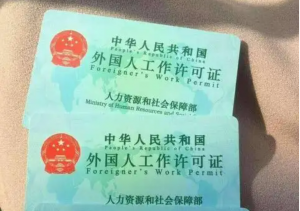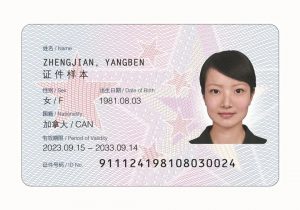4 Key Cities’ Guide to China’s Eased Residency Rules for Foreign PhDs
In a significant move this year, several cities across China have rolled out new policies greatly simplifying the permanent residence (five-star card) application process for foreign PhD holders. Shanghai and Shenzhen pioneered a fast-track permanent residence policy for foreign PhDs, followed closely by Beijing and Guangzhou. These cities have announced their participation in this preferential policy, collectively fostering a more open and inclusive environment for talent attraction.

Here’s a brief overview of the permanent residence policy for foreign PhDs in key cities:
1 Beijing
As the capital city, Beijing has relaxed its permanent residence application requirements for foreign PhDs, offering a streamlined process and preferential policies.
It’s important to note that applicants in Beijing must provide a complete CV (from the age of 18 to present, with continuous dates).

2 Shanghai
A major economic hub, Shanghai also facilitates foreign PhD holders, encouraging them to develop their careers in the city.
Notably, Shanghai does NOT require submission of materials on a CD.

3 Guangzhou
Known for its vibrant trade and commerce, Guangzhou welcomes foreign PhDs to apply for permanent residence, offering various professional opportunities.

4 Shenzhen
A pioneer in technology and innovation, Shenzhen’s open policies attract foreign PhDs, especially in the high-tech sector.
It’s important to note that Shenzhen requires applicants to have at least one year of tax payment records in the city to apply for permanent residence.

Foreign PhDs about to complete their studies and planning to apply for permanent residence in China can consider this information when choosing their employment location.
Required Documents for Foreign PhDs Applying for Permanent Residence (Five-Star Card):
Completed “Application Form for Foreigners for Permanent Residence in China”
Valid passport and work-related residence permit.
Original doctoral degree certificate and authentication.
Valid “Foreigner’s Work Permit”.

Employment certification from the workplace.
Copy of the employer’s business license or relevant registration proof.
Health certificate issued by domestic entry-exit inspection and quarantine authorities.
Foreign non-criminal record certificate authenticated by the Chinese embassy (or Hague apostille), valid, and clearly stating the applicant’s criminal record verification results. The name on the certificate must match the passport, and any name changes must be noted.
Chinese non-criminal record certificate covering all passport numbers used during the applicant’s stay in China.
Additionally, foreign spouses and unmarried children under 18 of these applicants, who abide by Chinese law, are in good health, and have no criminal record, can also apply for permanent residence (five-star card) alongside.
When applying for permanent residence in China, foreign PhDs should be aware of the following:
Eligibility Criteria: Understand and verify specific policy conditions in each city, ensuring qualifications in terms of education, work experience, and professional background. Contact professional agencies for a preliminary assessment to determine eligibility and required documents.
Document Preparation: Prepare a complete set of application materials, including passports, academic qualifications, employment contracts, proof of employment, tax records, etc. Ensure the completeness and accuracy of materials, meeting translation and certification standards.

Application Procedure: Be well-informed about the detailed permanent residence application process and timing. Most cities require a valid residence permit (work-related) with a longer validity period before applying for permanent residence.
Consultation Services: For any queries, consult the Chinese immigration department or professional agencies for accurate guidance and assistance. Keep track of application deadlines to avoid missing submission dates.


